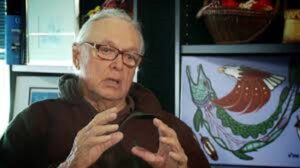Trusts honour the past, support the future

By Maurice Switzer
Audiences used to chuckle when Doug Williams-baa recalled some of the tactics members of his First Nation employed to hunt and fish for most of the Williams Treaties’ 95-year history.
“In the winter months, we’d wait until about 8 o’clock on a Saturday night, then head out onto the ice with white blankets for camouflage,” the one-time Curve Lake Chief would say with a little twinkle in his eye.
“But why that night, that time?” someone would inevitably ask.
“Because we knew the game wardens would all be watching Hockey Night in Canada,” was the hilarious Williams-baa punch-line.
Funny, yes, but sadly, true.
When a settlement was announced in September 2018 for the Williams Treaties, the governments of Ontario and Canada apologized for the injustices imposed on members of seven Chippewa and Mississauga First Nations who had been criminalized for hunting, fishing, and trapping because the Crown insisted that the Indians had surrendered their harvesting rights in their traditional territories.
“We are sorry that your grandmothers and grandfathers were persecuted for exercising their rights,” said Carolyn Bennett, then Minister of Indigenous Relations Canada. “We are sorry that the Crown failed to recognize and respect your treaty rights.”
Then-Chief James R. Marsden of Alderville, the First Nation whose name was on the 1992 Williams Treaty lawsuit, expressed what the legal action was all about: “fighting for our rights to hunt, gather, and harvest on our traditional lands. This is what our grandparents wanted.”
It was grandparents who had to sneak around to feed their families. It was grandparents who were shot at by farmers who squatted on Indian lands to which they had no legal title.
It was grandparents who routinely were fined or sent to jail if caught harvesting on traditional territories, a right they had been guaranteed by the 1818 Treaty 20 that convinced a judge to dismiss charges against Doug Williams-baa and a friend for catching bullfrogs in 1977.
It was grandparents who were not allowed to hire lawyers, and were coerced into accepting $25 one-time per person payments for 20,000 square kilometres of prime central Ontario real estate.
And it was grandparents who were forced to attend Indian Residential, Day, and Training Schools.
Alderville Chief and Council resolved that their portion of the treaty settlement would honour the sacrifices made by their grandparents, and be a legacy benefit for succeeding generations of community members.
After a generous per capita payment to the First Nation’s thousand on and off-reserve members, the remaining 60 per cent was locked into a 50-year trust. Chief and Council was elected to make decisions it felt best served their community, and it did so.
The six of us who were chosen to serve on the Williams Treaty Trust shared a vision that the multi-million-dollar nest-egg we had the responsibility of safeguarding existed because the courts and governments finally recognized that our ancestors had been illegally and unfairly treated. The settlement was our inheritance from them.
My late Mother, Ruby Marsden Hicks, was the only member of the seven Williams Treaty First Nations who was alive when the treaties came into effect in 1923 and who was still alive when the settlement was accepted in 2018. Her Alderville per capita distribution cheque paid for her last year’s residence in a Peterborough retirement home.
Her father, Moses Muskrat Marsden, had fought for recognition of Treaty 20 during his time as Alderville Chief, but like thousands of other community members, never lived to see a nickel of the overdue government debt.
Many of the successful submissions – about 20 each year – provide current benefits for band members: a fund to provide support for families burdened by funeral costs, paving gravel roads, and updating the community WIFI network and band office computer system. Trustees approved two Council requests to provide COVID-19 relief disbursements to help households experiencing pandemic-related hardships.
But trustees also believed it was important to approve projects that stood to benefit future generations, to be like the inheritance bequeathed to us by our grandparents.
It will be grandchildren who benefit from guaranteed funding for the first time for every qualified Alderville post-secondary student.
It will be grandchildren who benefit from the purchase of thousands of acres of additions to the reserve land base where they might someday seek refuge from the profit-mongering that increasingly plagues housing markets.
It will be grandchildren who can speak Anishinaabemowin being taught through trust-approved projects, a language many of their ancestors were forbidden to use.
Not every community member was delighted by the establishment of the Williams Treaty Trust. Some took to social media to lobby for “full payout” of all the settlement funds, ignoring the fact that the trust is locked in for 50 years, as well as the intention that it be an ongoing asset for all community members.
Some have sought election to band council on the false promise that their election will ensure that trust funds will be immediately and completely dispersed.
There has been a lot of talk these past few years about “Pretendians” – people who have assumed Indigenous identities, often for reasons of personal gain. Not all definitions of that term are necessarily about blood quantum.
Maurice Switzer, Bnesi, is a citizen of the Missisaugas of Alderville First Nation. He serves on the board of the North Bay Indigenous Friendship Centre.


